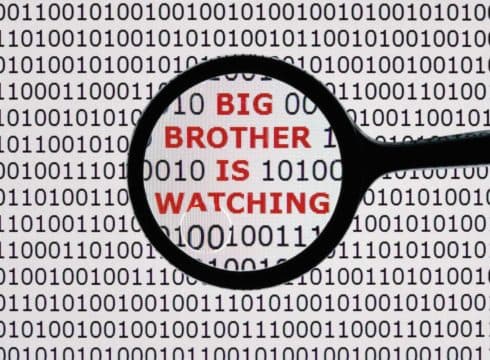WhatsApp spying controversy has brought up questions of government-sanctioned snooping
MoS home affairs said the government is “empowered” to monitor all computer-based communication
Facebook claims its encryption has not been breached
Inc42 Daily Brief
Stay Ahead With Daily News & Analysis on India’s Tech & Startup Economy
The WhatsApp Pegasus spying controversy has thrown up a lot of questions about whether the Indian government did indeed spy on its citizens. And responding to questions in the parliament, minister of state for home affairs G Kishan Reddy all but admitted to it.
Many representatives have publicly questioned the government over the snooping allegations on WhatsApp in the wake of the Pegasus spyware controversy, which originated in Israel. The NSO Group, which develops the spyware Pegasus, was blamed in a lawsuit by Facebook-owned WhatsApp. Soon after NSO admitted that it exclusively works with governments.
Reddy said the government is “empowered” to not only monitor digital communication but also intercept it in cases and decrypt any encrypted communication if needed. This includes any data that is originating from India or coming to India over devices. Citing section 69 of the Information Technology Act, 2000, and section 5 of the Telegraph Act, 1885, Reddy added in his response that it’s in the interest of national security and to maintain friendly relations with foreign states.
While the Indian government continued to blame the messaging app, Facebook defended itself by saying that WhatsApp is secured with end-to-end encryption and it was the vulnerabilities in smartphone operating systems — Android and iOS developed by Google and Apple — that have compromised the privacy of WhatsApp users in the Pegasus breach.
Since most smartphones run on Google’s Android with Apple’s iOS having the second largest market share, WhatsApp seems to be hinting at larger issues of device security and privacy, beyond just this incident.
Explaining the issue, Facebook said that the Israeli spyware Pegasus was installed through a WhatsApp call routed by NSO over WhatsApp’s server. “The access to a phone was made possible by reverse-engineering Whatsapp and fooling the server to believe that spyware code was Whatsapp traffic. Therefore, technically, the end-to-end encryption feature was not broken,” said Facebook.
Is WhatsApp Safe From Spying?
In the context of messaging apps, end-to-end encryption enables users to have secured communication, the contents of which are not visible to the provider and which are not stored on servers. This makes it difficult for hackers and governments to snoop into traffic and communication on the platform.
However, the Indian government has been against end-to-end encryption as it wants to bring in traceability of messages originating from WhatsApp and other apps with encryption. The issue is currently being heard in the Supreme Court. The government says that the traceability will help law enforcement agencies fight terrorism, dissemination of child pornography or the propagation of hate speech.
Raising the same concern, the government has been pushing WhatsApp to grant it access to encrypted messages. However, the social media company seems to be in no mood to give up on its end-to-end encryption, claiming that traceability would hamper user privacy.
Government Surveillance Gets Brazen
While Reddy’s response was not a straight admission of government-backed surveillance of private citizens without any notice or warrant issued in public, it is damning that the government feels this admission is not unusual. The wording of the response makes it clear that if indeed the Indian government was the client of NSO Group, it used the Pegasus tool to legally monitor citizens.
It said there are authorised agencies and the requisite permissions were taken since there are no blanket permissions, but it begs the question of why private citizens who were social activists, lawyers and journalists were targetted if it’s all about national security. The problem of secret rulings through the committee chaired by the cabinet secretary in case of the central government and chief secretary of the state government, does not seem very transparent. Why is there no involvement of judiciary? Or at least if there is, why does the response not make it clear?
The government openly admitting to such a surveillance state seems brazen in the face of numerous human rights violation during the recent prolonged gag order and communications blockade in Jammu & Kashmir after the abrogation of Article 370.
{{#name}}{{name}}{{/name}}{{^name}}-{{/name}}
{{#description}}{{description}}...{{/description}}{{^description}}-{{/description}}
Note: We at Inc42 take our ethics very seriously. More information about it can be found here.






